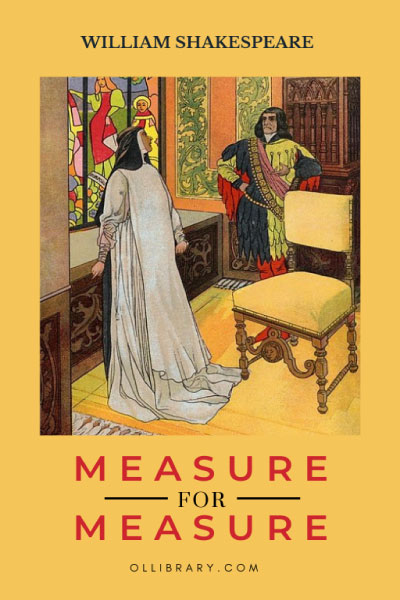Measure for Measure
Measure for Measure is a play by William Shakespeare, believed to have been written in 1603 or 1604 and first performed in 1604, according to available records. It was published in the First Folio of 1623.
The play's plot features its protagonist, Duke Vincentio of Vienna, stepping out from public life to observe the affairs of the city under the governance of his deputy, Angelo. Angelo's harsh and ascetic public image is compared to his abhorrent personal conduct once in office, in which he exploits his power to procure a sexual favour from Isabella, whom he considers enigmatically beautiful. The tension in the play is eventually resolved through Duke Vincentio's intervention, which is considered an early use of the deus ex machina in English literature.
Measure for Measure was printed as a comedy in the First Folio and continues to be classified as one. Though it shares features with other Shakespearean comedies, such as the use of wordplay and irony, and the employment of disguise and substitution as plot devices, it also features tragic elements such as executions and soliloquies, with Claudio's speech in particular having been favorably compared to tragic heroes like Prince Hamlet. Today, it is often cited as one of Shakespeare's problem plays due to its ambiguous tone.
Excerpted from Measure for Measure on Wikipedia.
Measure for Measure
| Author | William Shakespeare |
| Country | England |
| Genre | Comedy, Drama |
| Copyright | Public domain worldwide. |
| Book cover | Illustration by Czech painter Artuš Scheiner for Shakespeare’s Measure for Measure Image: wikimedia |
| Ebooks | Project Gutenberg |
| Scans | Google-digitized |
| Audio | Librivox | Internet Archive Reader: Group, Dramatic Readings 00 01 02 03 04 05 |
| Read online | Measure for Measure |


